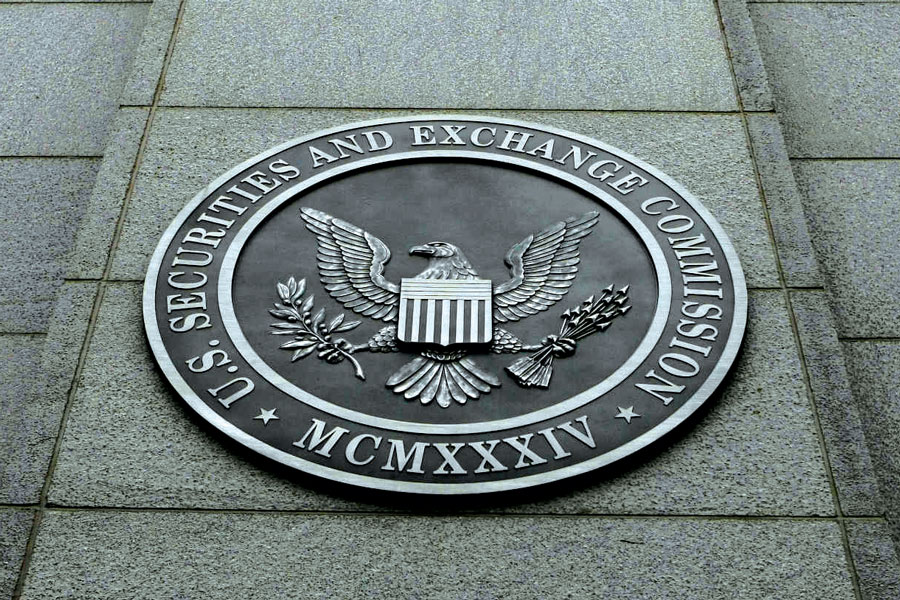SEC Pushes for Faster Retail Investor Access to Fund Data with Blockchain Solutions
30.08.2024 22:00 1 min. read Alexander Stefanov
The U.S. Securities and Exchange Commission (SEC) has advocated for more timely retail investor access to fund portfolio data, highlighting that current delays could disadvantage the 70 million American households that rely on this information.
Commissioner Jaime E. Lizarraga pointed out that during times of market stress, such as the Kovid pandemic, delayed data can impair investor decision-making. The SEC is focused on improving the regulatory framework to provide faster access to this critical financial information.
A potential solution to this problem lies in blockchain oracles, such as those provided by Chainlink. These oracles serve as intermediaries that connect the blockchain to external data sources, allowing smart contracts to be executed based on real-world input. Using decentralized oracle networks (DONs), blockchain systems can securely retrieve, verify, and transmit external data, ensuring that it remains tamper-proof. This technology has already been successfully deployed in decentralized financial applications (DeFi) where real-time data feeds are critical.
Chainlink’s partnerships with financial institutions such as Fidelity International and Sygnum have demonstrated the ability to input net asset value (NAV) data into the chain, offering real-time transparency and accessibility to fund portfolio data.
Integrating blockchain oracles into the financial ecosystem could directly address the SEC’s concerns by providing retail investors with timely and standardized access to portfolio data, thereby enhancing investor protection and enabling the SEC to more effectively monitor market trends and risks in real time.
-
1
Top 10 blockchains by transaction volume in June 2025
06.07.2025 16:00 2 min. read -
2
German State-Owned Development Bank Issues €100 Million Blockchain Bond
11.07.2025 7:00 2 min. read -
3
Tether Ends Support for Five Blockchains in Infrastructure Shift
12.07.2025 11:30 2 min. read -
4
Cardano and Ethereum Lead in Developer Activity as GitHub Commits Surge
14.07.2025 12:00 1 min. read -
5
BNB Chain Upgrades and Token Delistings Reshape Binance Ecosystem
16.07.2025 22:00 2 min. read
Charles Schwab to Launch Bitcoin and Ethereum Trading Soon, CEO Confirms
Charles Schwab is preparing to roll out spot Bitcoin and Ethereum trading, according to CEO Rick Wurster during the firm’s latest earnings call.
BlackRock Moves to Add Staking to iShares Ethereum ETF Following SEC Greenlight
BlackRock is seeking to enhance its iShares Ethereum Trust (ticker: ETHA) by incorporating staking features, according to a new filing with the U.S. Securities and Exchange Commission (SEC) submitted Thursday.
IMF Disputes El Salvador’s Bitcoin Purchases, Cites Asset Consolidation
A new report from the International Monetary Fund (IMF) suggests that El Salvador’s recent Bitcoin accumulation may not stem from ongoing purchases, but rather from a reshuffling of assets across government-controlled wallets.
Sberbank Moves to Dominate Russia’s Crypto Custody Sector
Sberbank, Russia’s largest state-owned bank, is preparing to launch custody services for digital assets, marking a significant expansion into the country’s evolving crypto landscape.
-
1
Top 10 blockchains by transaction volume in June 2025
06.07.2025 16:00 2 min. read -
2
German State-Owned Development Bank Issues €100 Million Blockchain Bond
11.07.2025 7:00 2 min. read -
3
Tether Ends Support for Five Blockchains in Infrastructure Shift
12.07.2025 11:30 2 min. read -
4
Cardano and Ethereum Lead in Developer Activity as GitHub Commits Surge
14.07.2025 12:00 1 min. read -
5
BNB Chain Upgrades and Token Delistings Reshape Binance Ecosystem
16.07.2025 22:00 2 min. read


